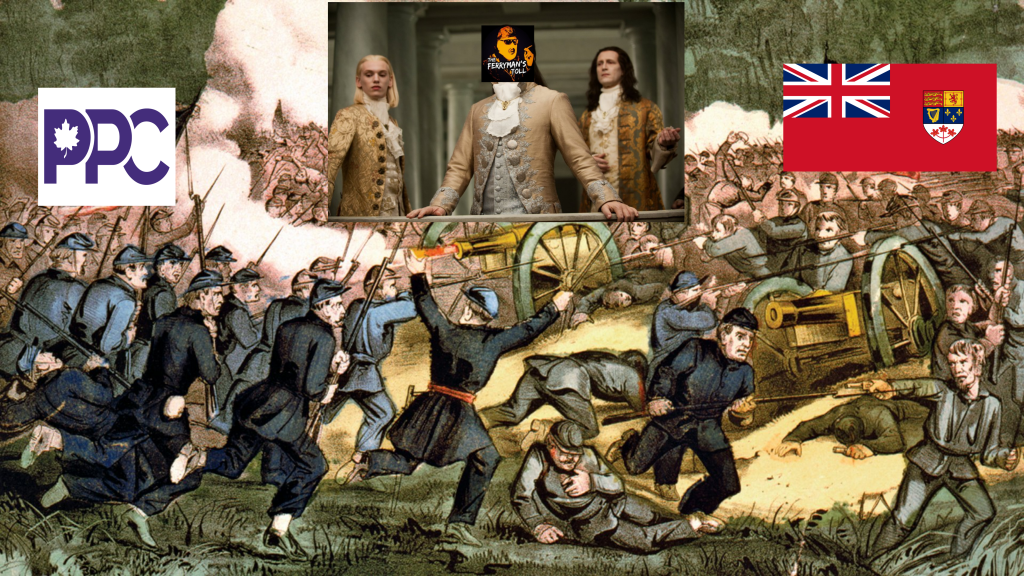A seemingly routine political event exposed deep fractures within the People’s Party of Canada that may determine its future viability. When Maxime Bernier attended a gathering with a Hindu organization—standard practice in multicultural Canada—it triggered fierce internal debate between competing visions of what the party represents.
The Catalyst Event
The gathering itself provided some unintentional comedy. Hindu-Canadian supporters wore t-shirts emblazoned with the boomer-era meme “Support the country you live in or live in the country you support”—proof that generational political messaging still resonates. More tellingly, the PPC brought their new Brampton candidate Jeff Lal, recently expelled from the Conservative Party for alleged Hindu nationalist extremism. His website still listed him as a CPC candidate with only a PPC popup overlay, suggesting the transition was hasty.
This event crystallized tensions between two distinct PPC factions: the Multicultural wing that embraces Canada’s diversity, and the Cultural Nationalist wing that I term “Red Ensign Nationalists”—those seeking to preserve a particular vision of Canadian identity rooted in the country’s British colonial heritage.
The Great Debate
The aftermath produced a fascinating public disagreement between two prominent PPC voices, both named Alex. TransSplendor defended Bernier’s attendance as legitimate outreach rather than pandering, while ferryman4747 used the controversy to advance Cultural Nationalist positions. Their subsequent debate was remarkably civil yet emotionally charged, offering genuine insight into the party’s philosophical divide.
Through six months of exchanges with PPC candidate Peyman Askari—a thoughtful representative of the Multicultural faction—I’ve observed how these competing visions struggle to coexist. The recent focus on mass immigration has pushed many Red Ensign supporters toward single-issue voting, making compromise increasingly difficult.
The Conservative Challenge
The changing political landscape complicates the PPC’s positioning. With new American leadership potentially shifting continental politics rightward, the Conservative Party may receive tacit permission to adopt positions previously considered beyond the mainstream. This threatens to undermine the PPC’s distinctiveness across multiple policy areas.
Examining the PPC’s twenty core policies reveals how vulnerable they are to Conservative encroachment:
Policies the CPC Will Likely Adopt:
- Diversity, Equity & Inclusion reform
- Immigration restrictions (possibly to moratorium levels)
- Opposition to gender ideology
- Climate change skepticism
- Public finance reform
- Self-defense rights
- Veterans’ affairs improvements
- Pipeline development
- Firearms rights expansion
- Free expression protections
Policies Where PPC May Maintain Advantage:
- Housing policy
- Healthcare privatization
- Indigenous issues (though both parties may prefer symbolic gestures)
- Supply management abolition
- Internal trade barriers
- COVID-19 response accountability
Policies of Limited Electoral Appeal:
- Equalization payments (matters mainly to Alberta)
- Internal trade technicalities (poorly understood by voters)
The Strategic Dilemma
If Conservatives capture even half these policy positions, what remains of the PPC’s unique appeal? The party faces pressure to choose between its multicultural and nationalist wings, but either choice carries significant costs.
Embracing cultural nationalism might align with Bernier’s personal inclinations but would fundamentally transform the party’s character and potentially alienate current supporters. Maintaining the multicultural approach risks appearing indistinguishable from mainstream conservatism on immigration and identity issues.
The emergence of candidates who explicitly advocate for cultural retention adds another layer of complexity. The party cannot simultaneously champion multiculturalism and cultural preservation without appearing confused or opportunistic.
Future Scenarios
Several forces will shape the PPC’s trajectory. The “DOGE effect” of government efficiency initiatives will likely influence Canadian fiscal policy regardless of which party implements it. Conservative adoption of populist positions could squeeze the PPC from multiple directions.
Perhaps most significantly, there appears to be electoral demand for a party that explicitly defines Canadian identity through the Red Ensign tradition—emphasizing the country’s British heritage and Christian foundations. If the PPC cannot or will not fill this role, another organization likely will.
The Bottom Line
The PPC’s internal contradictions are becoming untenable. The party must decide whether to be a multicultural populist movement or a cultural nationalist organization. The middle ground that once seemed viable is disappearing as political polarization intensifies and mainstream parties adopt formerly fringe positions.
The question isn’t whether the PPC will face this choice, but whether it can survive making it. In an era where authenticity trumps broad appeal, the party’s attempt to be all things to all dissidents may prove its greatest weakness.
